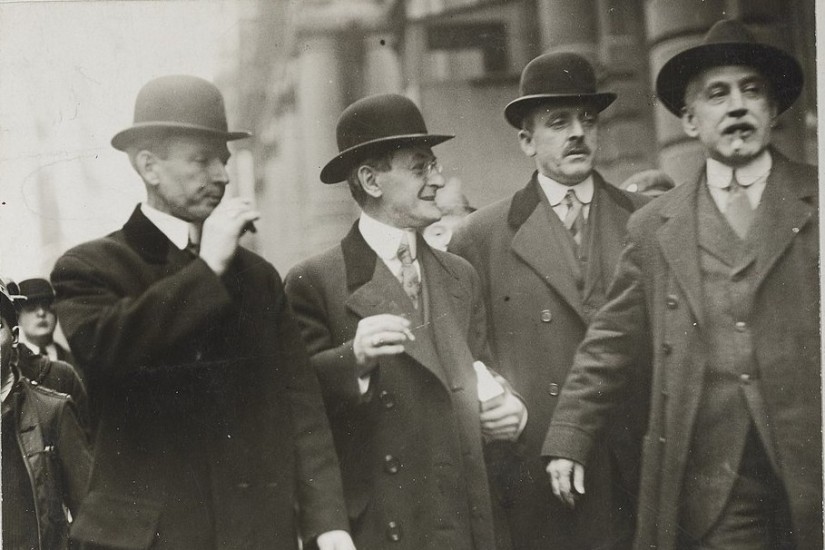“The Star-Spangled Banner” has long been a focal point of political protest and recrimination. The National Football League shunned the San Francisco 49ers quarterback Colin Kaepernick after he took a knee during the singing of the national anthem at games. At the 1968 Olympics, Tommie Smith and John Carlos responded to the anthem by raising gloved fists in a Black Power salute. During the Vietnam War, Jimi Hendrix twisted the tune into a dissonant wail. Yet nothing in the tangled history of “The Star-Spangled Banner” quite compares to a 1917 incident involving Karl Muck, the music director of the Boston Symphony. As Melissa D. Burrage relates in her new book, “The Karl Muck Scandal: Classical Music and Xenophobia in World War I America,” a brouhaha over the anthem led to the public shaming and eventual arrest of one of the world’s leading conductors.
Muck, an elegant figure with a coolly disciplined podium style, had arrived in Boston in 1906, having long led the Berlin Court Opera. He was a mainstay of the Bayreuth Festival, presiding over summertime performances of Wagner’s “Parsifal.” His exalted status in German music matched prevalent tastes in Boston, a city with a considerable German-speaking community. But the atmosphere changed markedly after the United States declared war on Germany, in April, 1917. In October of that year, Muck and the Boston Symphony gave a concert in Providence, Rhode Island. Patriotic demonstrations at concerts had become routine, and Henry Lee Higginson, the patrician founder and chief executive of the Boston Symphony, was asked to include “The Star-Spangled Banner” on the program. For various reasons, Higginson declined to do so. An arrangement of the anthem was not immediately available, and Higginson felt that patriotic tunes had “no place in an art concert.”
The blame fell squarely on Muck, whose attachment to Kaiser Wilhelm II and the German Empire was well known. John Rathom, the editor of the ProvidenceJournal, concocted a story that Muck had refused to play the anthem. (In fact, the conductor knew nothing of the request until after the concert, although he later echoed Higginson’s snobbish stance.) Rathom had made his name printing sensational and often fictitious tales of German espionage in the United States. Once the war began, such paranoid chatter was encouraged by George Creel’s Committee on Public Information, which whipped up a nationwide wave of anti-German hysteria.
